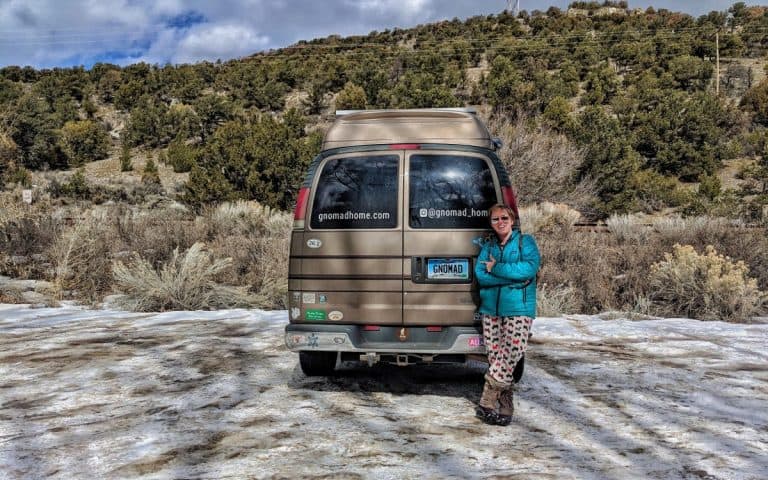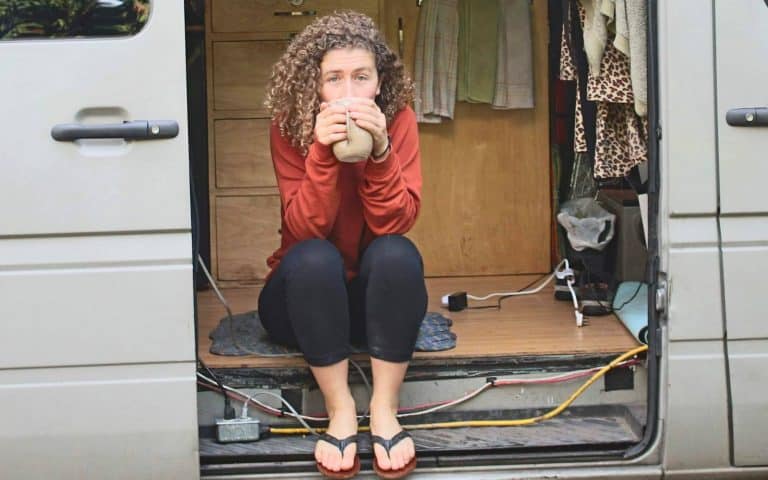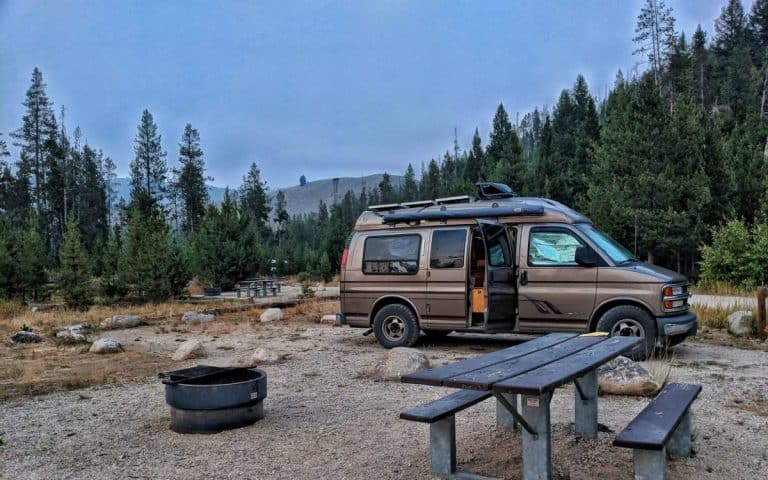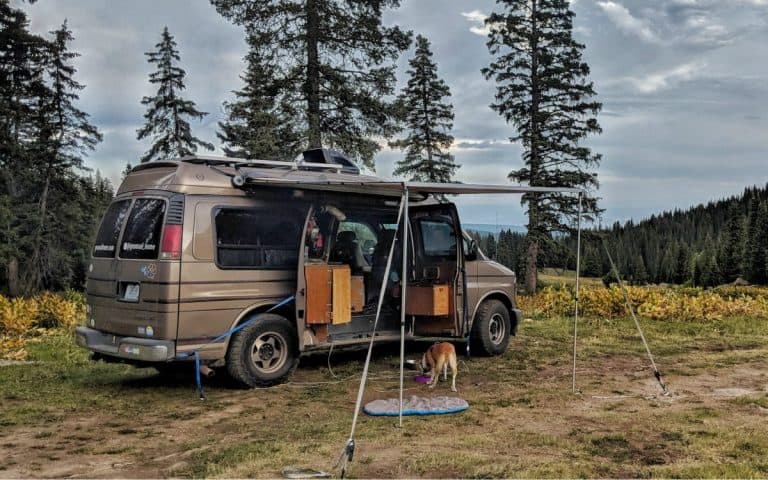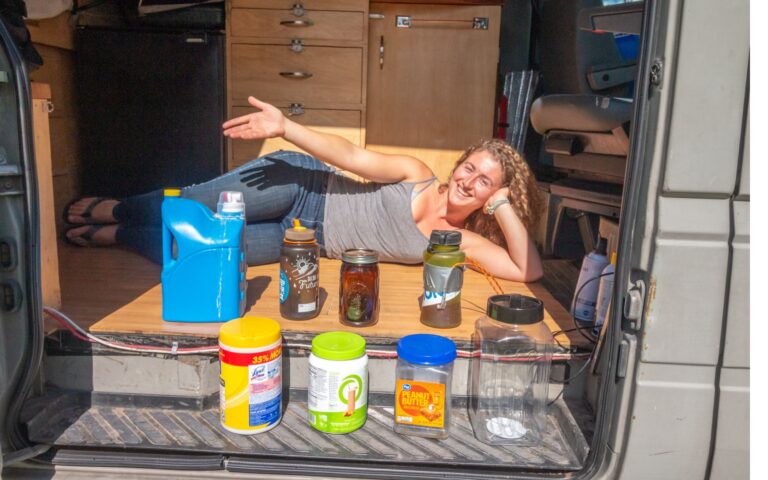We’ve all seen the photos on social media of happy-looking nomads doing yoga on mountain tops or cooking by a river or cuddling under the stars. We’re all aware of the highlights of vanlife and nomadic living.
You can live in the middle of nowhere in a badass DIY campervan, sleep under the stars, be fully off grid and get all your energy from solar power. You can go anywhere you want, whenever you want. It’s the DREAM, right?
Well, yes. After almost three years of nonstop nomadic living, we’ve got to admit – it is pretty fantastic.
We have become our best selves since committing to life on the road. We have the freedom and flexibility to shape our lives into exactly how they are. It’s a reality of this lifestyle to camp out with a mountain range right outside our door, and waking up early every morning to watch the sunrise over those majestic peaks.
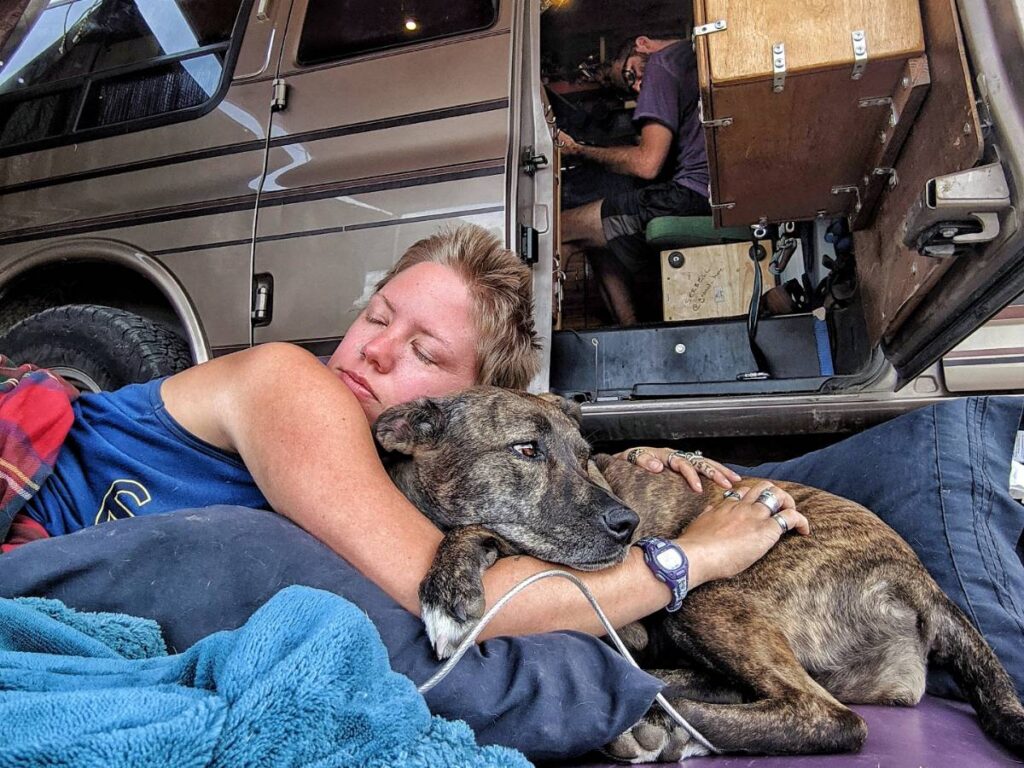
That doesn’t make every month, every week, every day, or every hour easy. Frankly, if you aren’t careful, life on the road can become very exhausting, stressful, anxiety-inducing, and overwhelming in an instant. Even surrounded by all of this beauty and freedom, it’s very easy to get burned out if you’re not careful.
There have been many times over the past few years when it felt like the hardships outweighed the glory. These speed bumps have helped us appreciate the good that much more, but mental and physical hardships are a fact of nomadic living.
So what are some of the mental hardships that full-time nomads face on the road?
1. General Discomfort
For starters, there’s the biggest mental hurdle that almost everyone faces when they hit the road, and that’s just dealing with general discomfort. It’s inevitable.
There is not one nomadic soul in the world who has not had to deal with feelings of discomfort. Whether you are stuck sleeping in freezing temps with no heat, or you are uncomfortable pooping in a self-dug hole, or you suddenly have hundreds of mosquitoes swarming the inside of your van (this actually happened to us), you will have to deal with the mental hurdles of discomfort. And you’ll also need to learn to push through them if you want this lifestyle to work out for you.
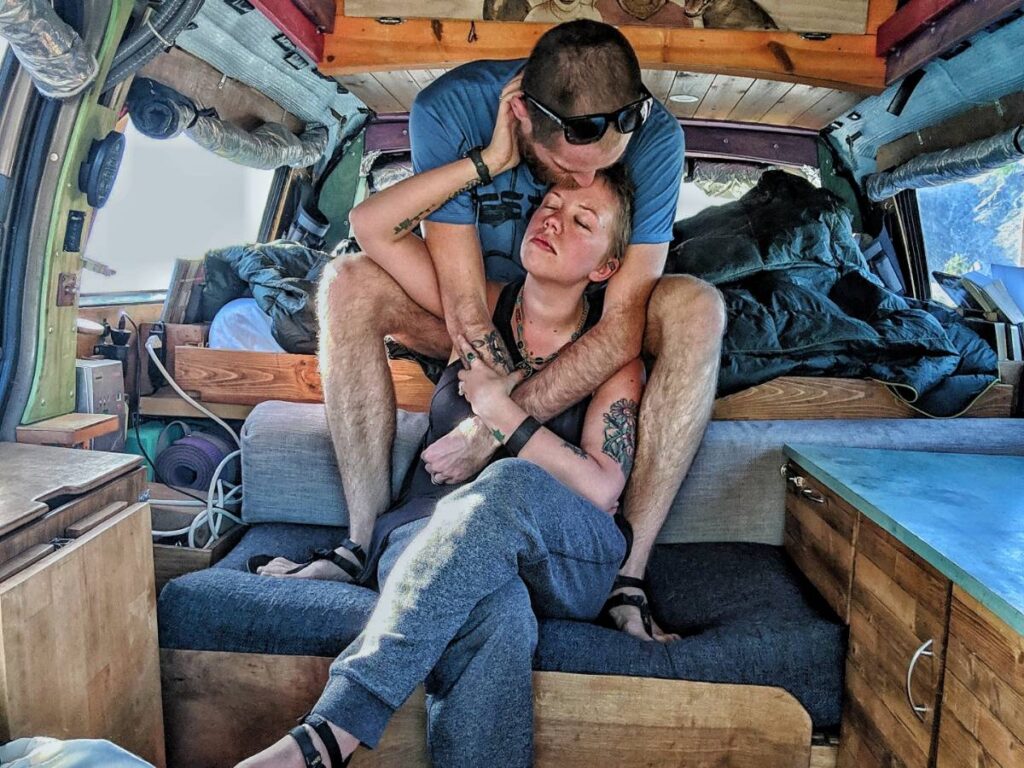
We would have u-turned in the middle of the highway years ago if we allowed discomfort to overtake us. When we first hit the road, I (Jayme) was swimming in unaddressed insecurities. So anytime something became uncomfortable (temperatures inside or outside the van, can’t find a decent campsite, not having cell service, etc), I was close to throwing in the towel.
Luckily, I had a patient companion who was there to remind me why we chose this lifestyle in the first place. And over time I’ve worked through these discomforts and have even grown to enjoy them. Now I am better at handling temperature control inside of the van, I hate having cell service, and we’ve both become pros at finding the best places to camp.
2. Fear of Others
Another mental hurdle to work through is addressing fear, in regards to things other than you. The who’s and what’s of this may vary from person to person.
Getting Rid of Fear
We’d like to start by saying one thing – anytime you have a fear, you are most likely to get rid of said fear by education and by exposure. And always follow your gut if a situation doesn’t feel right.
Maybe you are afraid of bugs. Well – spoiler alert – the outside is infested with them! But if you choose living a nomadic lifestyle in the wild, you will be diving head first into the “exposure” aspect of addressing your fear. If you’d like additional help in getting over said fear, read about the bugs in the area you are traveling! You are likely to learn that very few bugs are trying to murder you in your sleep.
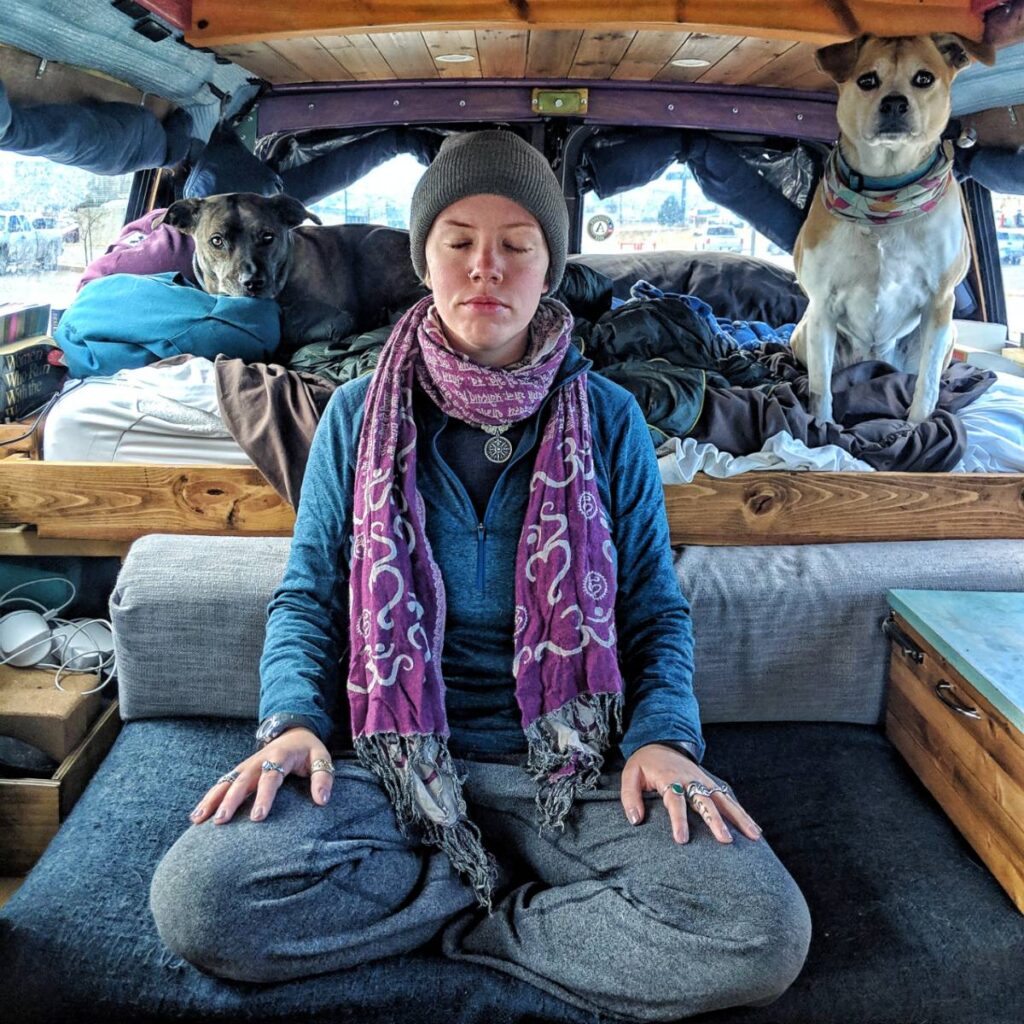
Some times it was the humans that made us uncomfortable. We pulled up to a campsite in the middle of the woods to find broken glass, empty alcohol containers thrown about, and bullet casings everywhere. We camped there only one night, because even though it was a beautiful spot, the last thing we wanted to deal with was a bunch of drunk people orchestrating their own target practice.
There was another time near a city that a ragtag group of people stopped us in a parking lot and began asking us a lot of deeply personal questions about the equipment in and on our van. We answered their questions as politely and directly as we could, but their strong curiosity made our guts tell us something wasn’t right. We followed that feeling and skipped to the next town immediately.
Most people and things are not out to murder you. But occasional fears of wildlife and humans can come up from time to time and it’s important to listen to the situation holistically. We have intuition for a reason – to tell us to get out of dodge when things are not quite right.
3. Where the HELL are we sleeping tonight?!
Finding a place to crash for the night can be stressful, whether you are boondocking in the wild or stealth camping in a city.
In the wild, most times you have to drive all over the place to find the “right” spot. And lots of factors can play into what makes this spot “right” for you. Do you need cell service? Would you prefer to have a pit toilet vs digging a hole? Is it dreadfully hot and you’re looking to camp near water?
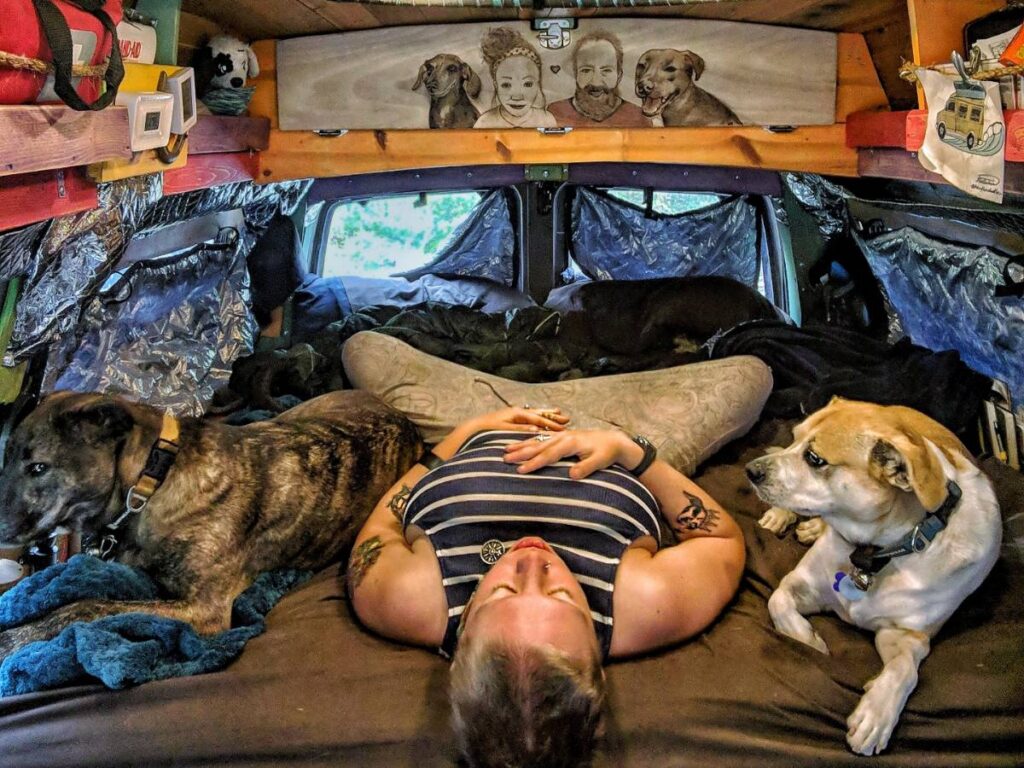
Sounds stressful, right? Now imagine your errands took a bit longer than expected and you now have to find your wilderness camp in the DARK! That adds a whole other level of stress to the situation.
City camping is another bag of worms to wear down your mentality. Where am I allowed to park? Am I going to have a cop knock on the door at 3AM telling me to move? Not to mention you then have to deal with street lights coming in through your windows and street noise of the late night traffic buzzing around town. And add to it that you now have to pee in a yogurt container because you’re definitely not going to step outside of the van to pee in the middle of the street.
4. Lack of Groundedness
The ability to travel wherever you want whenever you want can be a hell of a lot of fun, and brings with it another level of freedom. But it can also be similar to when we all finally became adults and were excited to make our own rules and not abide by the ones set down by our parents.
“I’m going to have cereal for dinner and beer for breakfast! I’m going to sleep in until 3PM everyday!” Sure that all sounds fun and dandy, but three months later and suddenly you’re an overweight alcoholic who’s been fired from every job they’ve ever gotten.
We have found that our lives see the most success holistically when we have a routine. When we wake up at sunrise and knock out A, B, and C and then we do D until lunch and E until dinner and then after dinner we do F, G and H. When we are able to structure routine into our daily lives – we are unstoppable with our accomplishments!
But when you live nomadically it is very challenging to solidify a routine. There’s just far too many things that interfere with your flow. Your vehicle may break down and then suddenly that takes up your whole day (or week)! There may not be a grocery store in this town, so you have to drive an additional two hours to stock up on food. And if you are traveling to new locations every 2-3 days, it is severely challenging to lock in a solid routine.
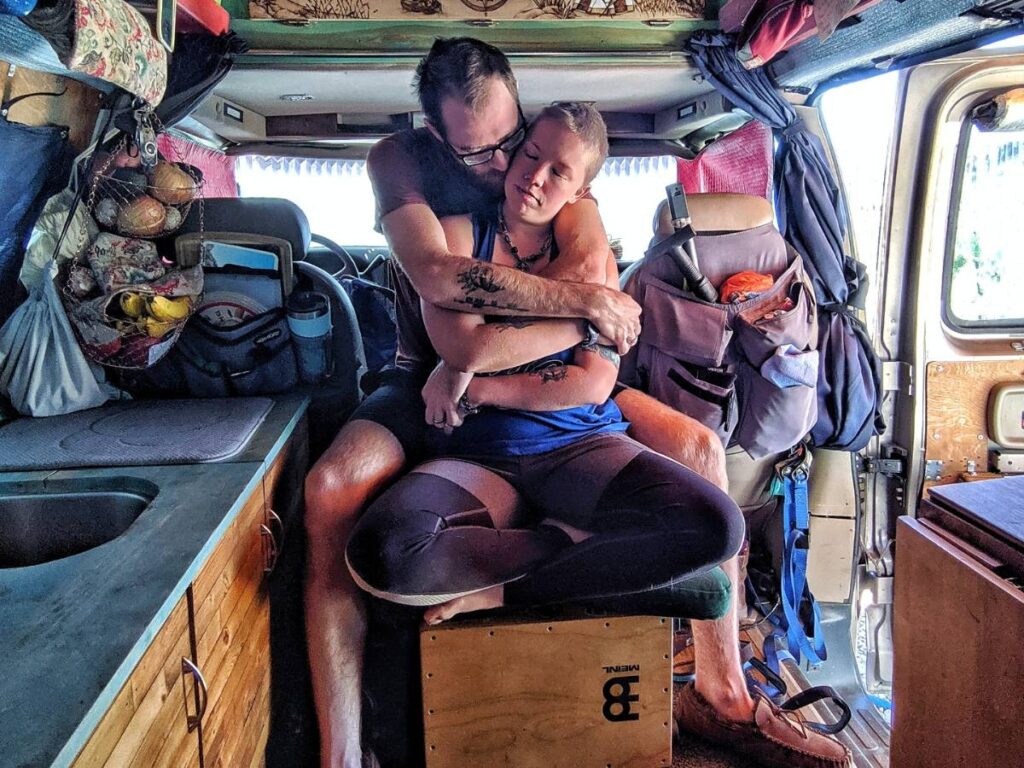
Lack of groundedness is a serious problem when living nomadically. Not being able to get stable in your flow can throw off many aspects of your life. It may be harder to focus on work. You may become irritable. You may be tired all the time. Finding that balance and establishing a routine as best as you can will help you avoid our final mental hardship.
5. Burning Out
It can be very easy to get burned out on the road if you’re not careful. There are many hardships that can become overwhelming for too long and may have you sitting there going, “I just can not do this any longer”.
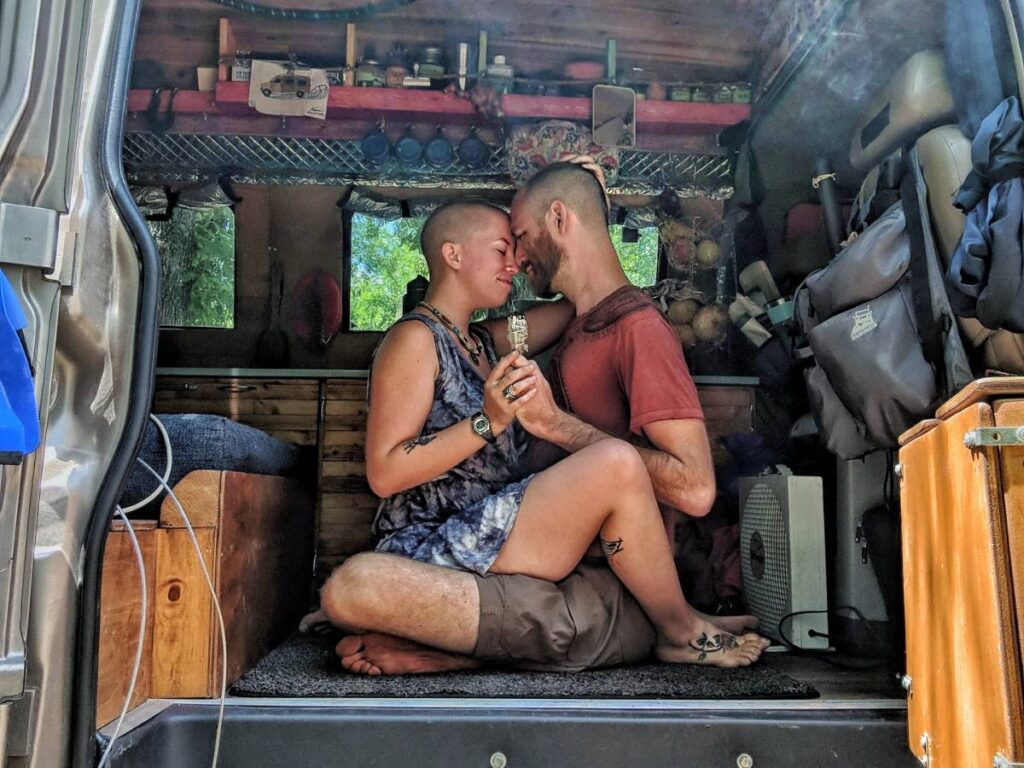
If you love cookies, then indulging in a cookie from time to time is wonderful. But it’s not the greatest idea to go out and buy three cookie cakes and eat them all in one sitting. Balance is key to avoiding burning out on the road. Constant go, go, go, go, go with no breaks will burn you out – most definitely.
By “breaks” we don’t mean crashing at a family member’s place for a month or staying at an Airbnb every other week. We mean just staying still. Find a spot you can camp out for a while. Set up camp. Put your awning out. Kick your legs up. Re-establish a routine. Get in a flow. Then in a few days (or a week) when you’re feeling rejuvenated, pick up and go again.
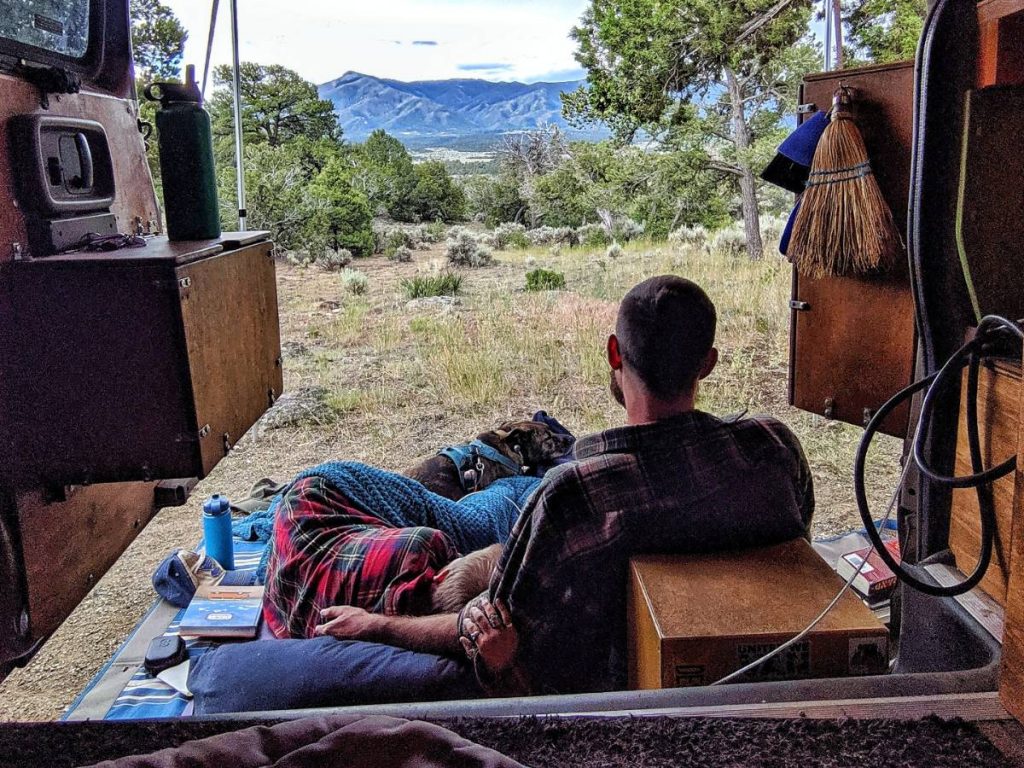
This balance is crucial to staying on the road long-term, and ignoring it is one of the most common van life mistakes. It’s fun to go, but you need to balance it out with some groundedness. Examples 4 and 5 go hand in hand. If you don’t chill every once in a while, you’re going to float away. And vehicles do not float yet, so that’s a dangerous concoction if you’re wishing to stay on the road.
Balance and Honesty Will Keep You on the Road Long Term
Living nomadically can be a very trying and exhausting experience. It’s important to check in with yourself holistically to see how you are doing and what you are needing. Sometimes you have the travel bug and it’s time to move. But sometimes you need some roots, and it’s okay to set up camp for a couple days – or a couple weeks – and then hit the road again feeling refreshed.
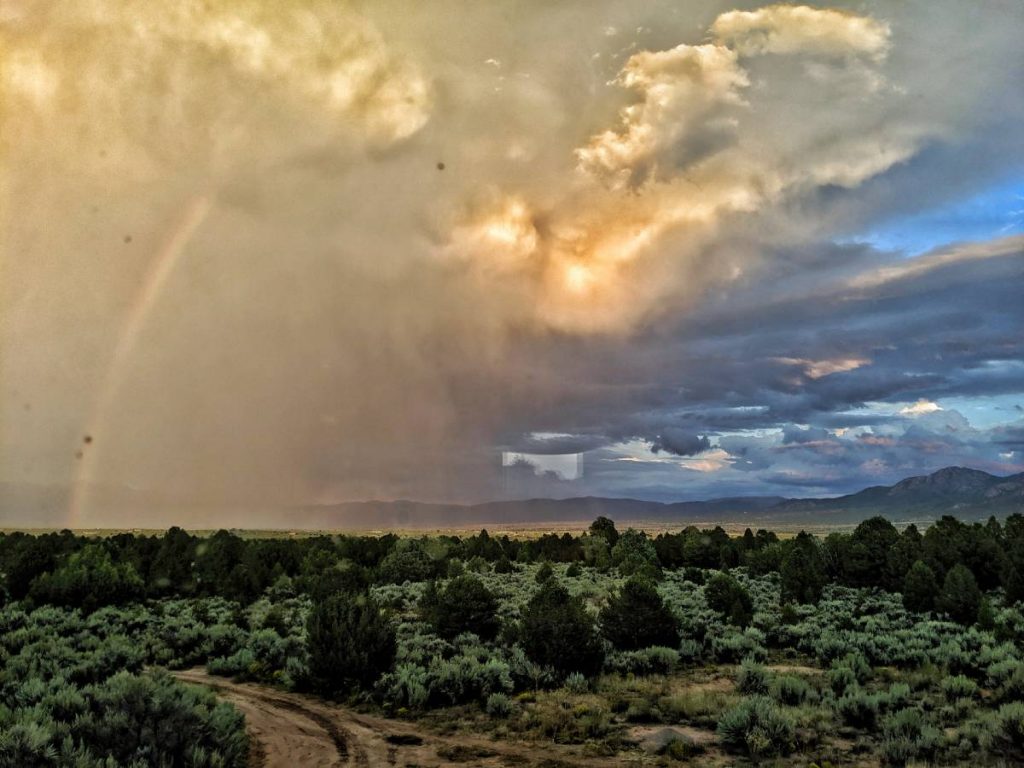
Life on the road is going to be uncomfortable. Understand this. And when it gets uncomfortable, understand that over time, you will learn to adapt and evolve. This also will change. But keep in mind that when one discomfort goes away, one or two new ones arise. Be patient. Learn to embrace the discomfort. It will help you appreciate the rest of the experience that much deeper.

